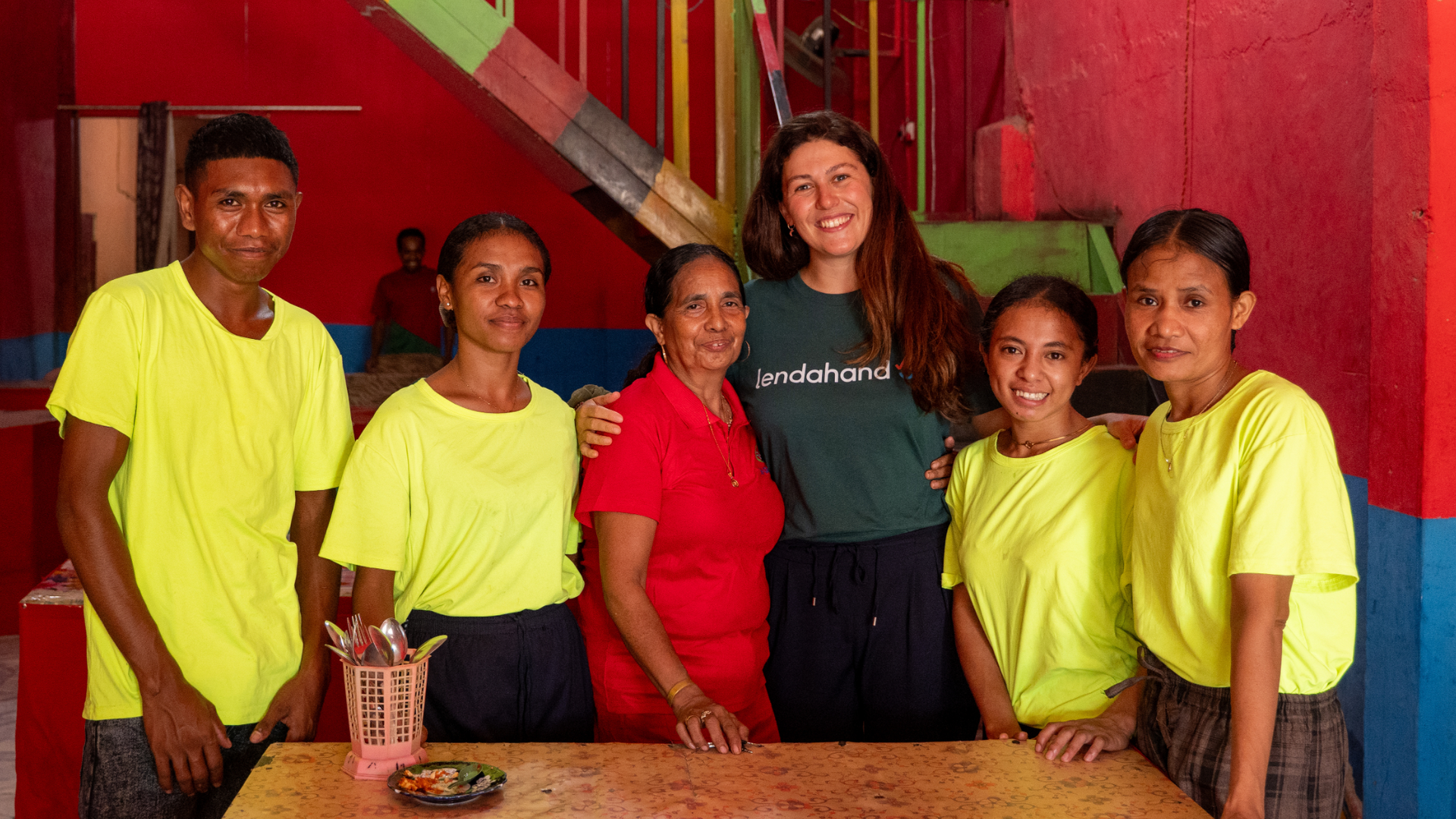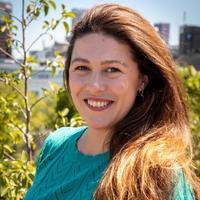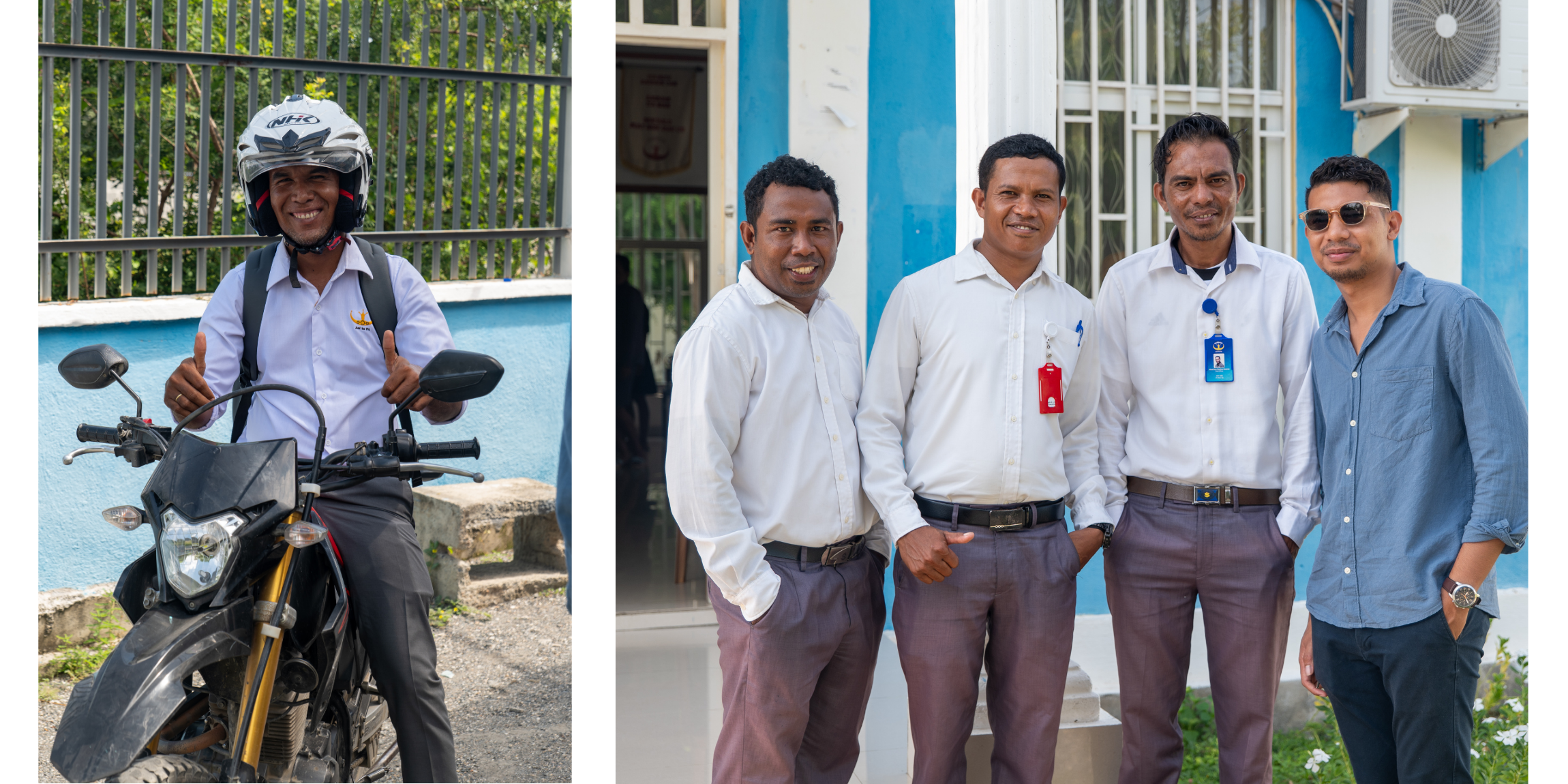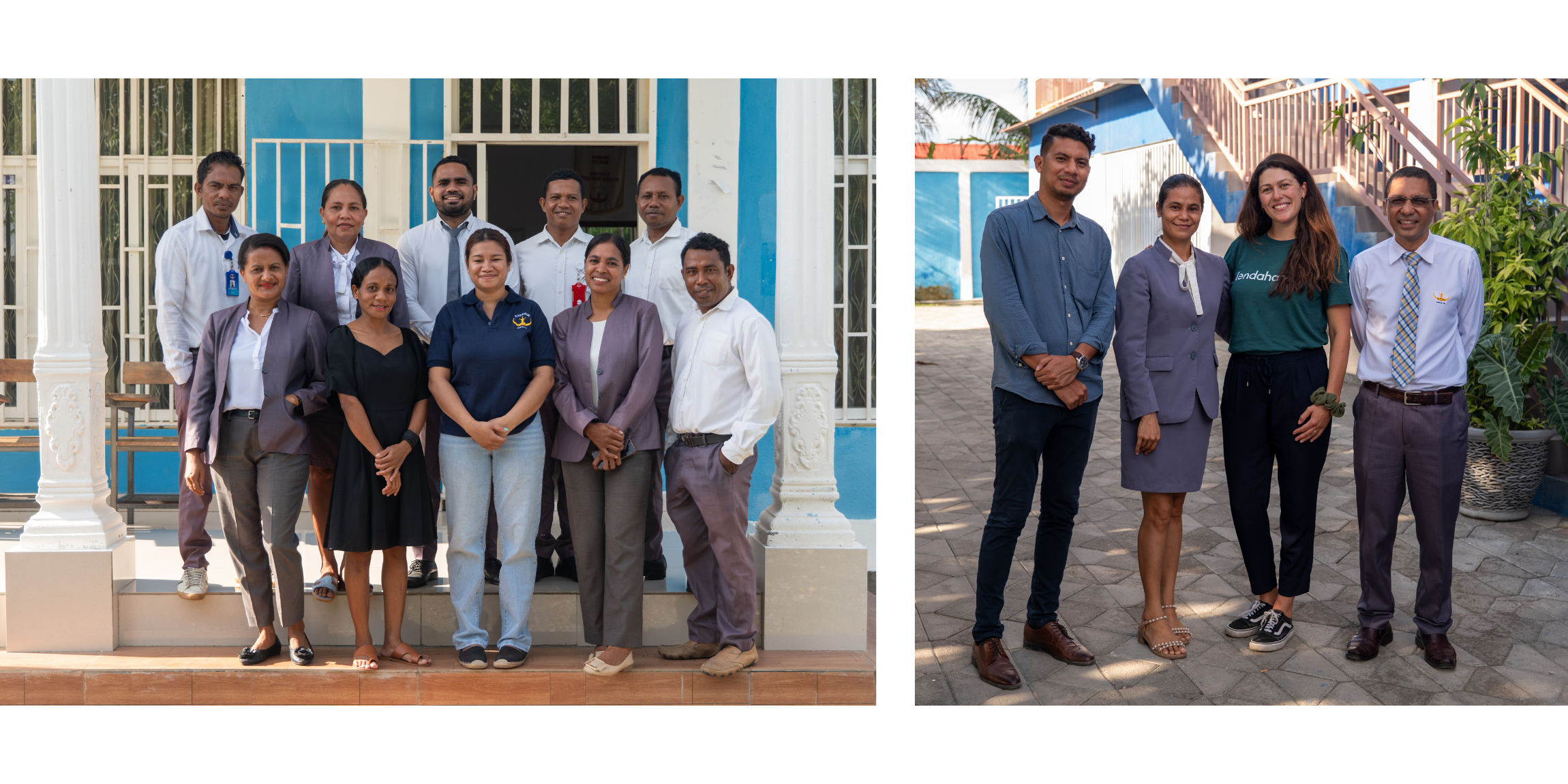
Microfinance as a Lifeline for Many Entrepreneurs in Timor-Leste

Written by Lynn Hamerlinck on 12 September 2024
Arriving in Timor-Leste is an experience that stirs the imagination. From Indonesia, it’s just an hour’s flight to the small capital city of Dili. You fly over a clear blue ocean, occasionally spotting an atoll or a lush, volcanic island through the window.
Upon arrival, you immediately get that this is not Jakarta or Bangkok. Dili is a low-rise city, lacking in infrastructure. Why that is will become clearer as you read this article.
After checking in at one of the few available guesthouses, I head to the office of Kaebauk Investimentu No Finansas. The microfinance institution has been raising funds via Lendahand since 2023. With this visit, we aim to better understand how this financing is being used to combat poverty and foster economic prosperity in the country.
How does MFI Kaebauk Operate?
For the next two days, Tony, the Business Development Manager at Kaebauk, will be my main contact. I immediately notice how passionate Tony is about his work and country. He grew up and studied in Australia but chose to live close to his family in Timor-Leste: “In Australia, I’d earn more with my degree and have a better standard of living, but the knowledge of young professionals is needed to put Timor-Leste on the map. That’s why I’m here, working at Kaebauk.”
We walk past the office of Deputy Director Edio, who tells me, “I work here for the social impact we create. I regularly visit our branches in rural areas to talk to people about their financing needs. It always strikes me how important we are to many people. They often start with a microloan of 100 dollars, the minimum, and can grow into a real shop or business. Those success stories still give me goosebumps and hope.”
Kaebauk has built a solid reputation. From their 22 branches in rural areas, they talk to people and provide personalized follow-ups. This work is done by the so-called field officers, who have various responsibilities. First, they seek out new potential clients to meet their monthly targets. They also follow up with existing clients. In both tasks, it's crucial that they develop a clear understanding of their client’s situation. How much money does someone need? What is it needed for? How will they repay the loan? What is their family situation?
If you spot a field officer in the wild, 99% of the time, they’re on a motorbike. Without it, they wouldn’t get anywhere. The bike allows them to traverse the most remote, bumpy roads to reach even those living deep in the mountains. The roads are barely paved, and when they are, you have to constantly dodge enormous potholes.
A field officer has a specific profile: an energetic man between 30 and 45 years old with a degree in accounting. Culturally and physically, it’s a man’s job. They spend the entire day riding their motorbikes on remote roads and are responsible for transporting cash for loan disbursements and from repayments. They must know the roads and people well and often work long hours to meet their targets.
The field officers are supported by colleagues with more extensive financial backgrounds and receive regular training. Often, a field officer can grow into a branch manager role. Together, the team assists clients with their loans and negotiates repayment terms. Such flexibility and understanding are hard to find at a traditional bank.
Kaebauk strives to attract more women to their team. Women typically work as secretaries or accountants in the office. At Kaebauk, 30% of the 330 employees are women.
Kaebauk Sees People, Even in Remote Areas
Out of Timor-Leste’s population of 1.3 million, only 220,000 live in the capital city of Dili. The rest are scattered across hard-to-reach villages. How do you ensure that no one is forgotten?
In the context of poverty alleviation, it’s crucial to reach people in the most remote areas. They rarely have access to financing or financial literacy. They are often afraid of banks that charge interest and require collateral and usually don’t understand how money, when managed well, can help them progress.
As a result, a staggering 86% of Timorese people do not have a bank account. Everything is done in cash. They still use Timorese dollar coins, but the bills are classic US dollars. Of all the clients we visited together, only one entrepreneur had a bank account.
“But where do people keep their cash then?” I ask Tony. “Oh, just rolled up in a bamboo stick somewhere in the room,” he replies.
Is Everyone an Entrepreneur in Timor-Leste?
60% of Kaebauk’s clients are women. Why are there so many female entrepreneurs? In Timor-Leste, men typically work for employers. The largest employers are the government, construction companies, and security firms. For women, jobs are scarce. That’s why it’s mostly women who start their own economic activities and take out loans from Kaebauk. It’s also usually the women who handle the finances at home.
What strikes me is how low the purchasing power is in the country. Many entrepreneurs sell the same products and see few customers each day. Yet, the current democratic government has earned the people’s trust to continue fostering growth in Timor-Leste. Much has changed in recent years, but the country still lacks opportunities. The population hopes to attract more attention from international investors, not just from China.
Visiting the Entrepreneurs
Tony takes me along the unpaved roads around Dili to meet various entrepreneurs. At the branch in Bazartete, I meet the energetic Risk Officer Alicia, who is eager to tell me about her job: “I used to work full-time in accounting at the headquarters, but now I come to the districts at least three days a week to conduct risk assessments of (potential) clients. I enjoy this much more! I consult with the field officers to determine if someone can take out a loan and, if so, how much they need and can comfortably repay.” “And what if they can’t?” I ask. “Then we work together to find a solution. That’s necessary for about 20% of the people.”
Who Can Get a Loan?
To qualify for a loan, you must meet the following conditions:
- Your business must have been active for at least 5-6 months.
- You must show some cash flow. If you can’t provide that, Kaebauk will help you set it up.
- The average loan amount is 1,500 US dollars.
The Liquiça Market
At the Liquiça market, we visit Lídia. Her husband passed away young, and as a single mother, she was able to send both her daughters to university in Dili thanks to her businesses and loans.
Lídia’s main source of income is her kiosk. She also bakes bricks and runs a market stall where she sells second-hand clothing. She employs two people in the kiosk and two more for the bricks.
I ask her about the operation of her store: who are her customers, and how long do the products stay in the shop on average? “Food and drinks sell quickly; I have to restock every two weeks. But for other products, like perfume, it can take two months,” Lídia tells me. Judging by the layer of dust, I dare to suspect some products had been on the shelf for over two years.
Lídia is very active in her community and serves as a mentor for other women. They cook together and discuss how to improve their living conditions. They’ve even set up a savings group to help each other when misfortune strikes.
Further along the market, Imaculada sits with a friend and two of her children. She sells vegetables she bought from a farmer with money from a small agricultural loan from Kaebauk. A spot at the market is free. She sells only onions, tomatoes, eggplants, and spinach.
Due to her family situation, Imaculada is currently quite dependent on the financing. Fortunately, repaying her loan is going smoothly. Kaebauk helps her determine the loan amount so that she doesn’t face repayment difficulties.

I met more entrepreneurs in Timor-Leste. You can read their stories among Kaebauk’s projects on our crowdfunding platform.
Timor-Leste’s Struggle for Independence
In the evening, I head to the coastal strip in search of something to eat and drink. There aren’t many restaurants along the shore, but I’m content with my find: a coconut for 2 dollars from a street vendor and a packet of sweet potato fries with melted cheese from a stand. Sitting on a concrete block by the roadside, I decide I want to learn more about the history of this fascinating country.
The next morning, I take an old taxi for 4 dollars to the Resistance Museum, where I’m deeply moved by the colonial history with Portugal, which lasted until the Carnation Revolution in 1974, and the independence struggle against Indonesia, which cost the lives of 180,000 Timorese between 1975 and 1999.
The official languages today are Portuguese and the local Tetun, but many also speak Bahasa Indonesia or a little English.
The economy is desperate for growth and opportunities. Timor-Leste is still heavily dependent on imports from Indonesia and Australia. Tourism is also in its infancy. You can climb Mount Ramelau or visit Atauro, an island where you can snorkel and dive. The coral reefs are said to be beautiful and untouched. Potentially a great off-the-beaten-track destination.
Deeply impressed by the stories but hopeful for a brighter future, I head to the airport.
Keep the Timorese People in Mind
Timor-Leste is not my first visit to a developing country. Yet, this trip has left the most profound impression on me in terms of understanding the intricacies of poverty. This is a new nation with a history it did not choose, but it is working toward improvement with the resources available. That we can contribute to that from Europe is truly special.
Back in Indonesia, I find a handful of Timorese dollar coins in my backpack: “Darn, with this, I could’ve provided the woman at the market with two days’ wages,” I think. A week later, I’m back at the airport. Before heading to my gate, I pass by the one for the flight to Dili, which departs around the same time. A Timorese woman makes eye contact with me, and I ask if she speaks Portuguese. We agree that she’ll give the coins to someone who really needs them. ‘Para ajudar alguém que precisa, está bem?’ She nods with a broad smile. I sense she already has someone in mind.
Kaebauk also has someone in mind who will greatly benefit from your investment. Show through Lendahand that you believe in the Timorese people and invest in Kaebauk’s project today. Your financial return is 5.25% per year, but your social return goes far beyond that.


